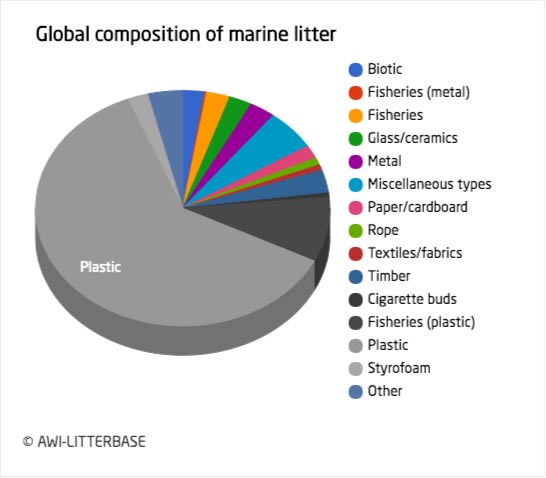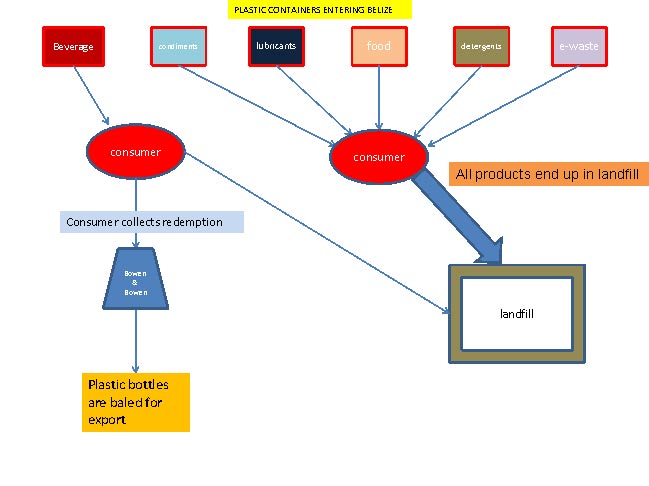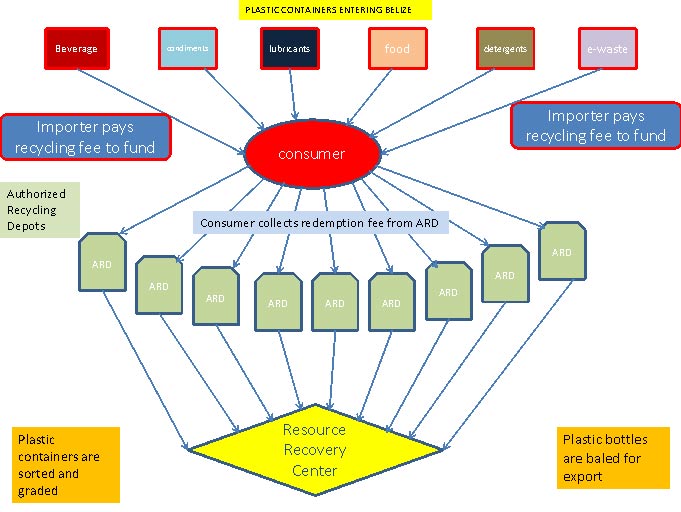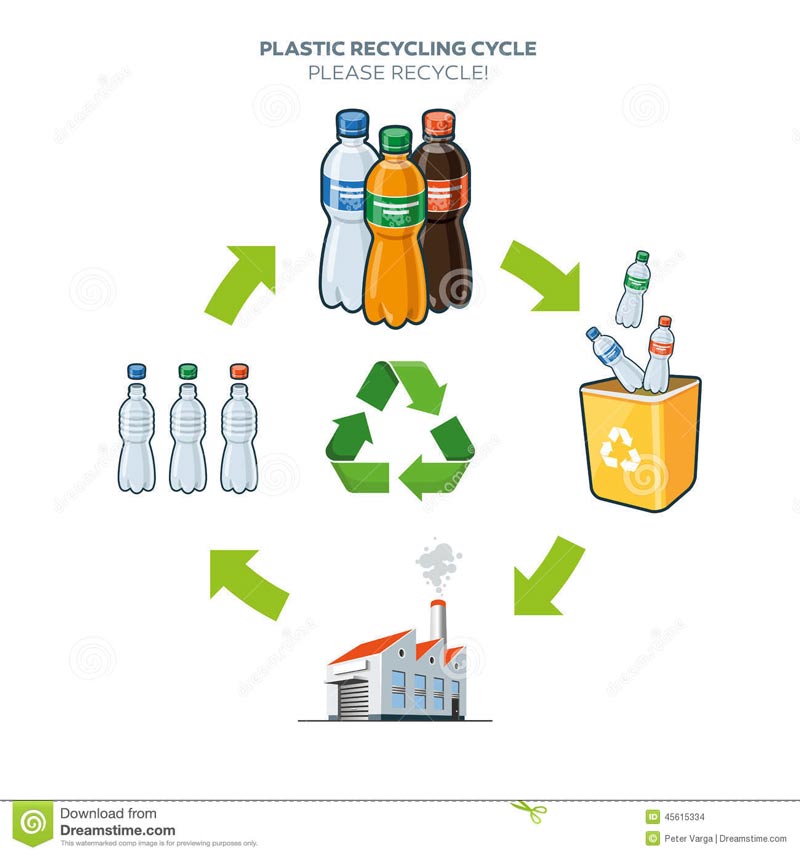Marine Litter / Plastic
Marine litter has been defined by UN Environment as any persistent, manufactured or processed solid material discarded, disposed of or abandoned in the marine and coastal environment. Marine litter consists of items that have been made or used by people and deliberately discarded into the sea or rivers or on beaches; brought indirectly to the sea with rivers, sewage, storm water or winds.

ACCORDING TO THE CHART PLASTIC IS THE MAIN TYPE OF MARINE DEBRIS THAT YOU WILL SEE WALKING ON THE BEACH.
THESE ARE SOME FACTS ABOUT MARINE LITTER.
• One million seabirds are killed by marine litter every year.
• 100,000 turtles and marine mammals, such as dolphins, whales and seals, are killed by plastic marine litter every year around the world.
• Plastics are the most common man made objects sighted at sea, with 18,000 pieces of plastic litter floating on every square kilometre of the world’s oceans!
Six million tonnes of debris enters the world’s oceans every year, weighing about the same as a million elephants!
MARINE LITTER NEEDS TO BE STOPPED AT THE SOURCE ..
RECYCLING PLASTIC AT THE SOURCE WILL STOP MARINE LITTER ..
OUR VISION
A Product Stewardship program responsible for recycling of all types of recyclable containers plastic , glass and aluminum in Belize.
A Government of Belize (GOB) National Beverage Container Stewardship Plan.
HOW WILL THIS BE ACCOMPLISHED ?
AMEND THE RETURNABLE CONTAINERS ACT .
Chapter 328:01 Revise 2011 to include The Extended Producer Responsibility (EPR) strategy being central to creating The Beverage Container Stewardship Plan..
EXTENDED PRODUCER RESPONSIBILITY
“EPR is an environmental strategy arising from the Polluter Pays Principle. The strategy objective is to minimize the environmental burden of a product by making the producer directly responsible for the financial costs and management functions associated with products throughout the product’s life cycle .”
Recycling being the focus of the strategy ..
ENFORCEMENT
Department of Environment (DOE)
THE PROBLEM
As our towns and cities grow consumption patterns drive up solid waste quantities. A recent study produced for the Solid Waste Management Authority (SWMA) suggests our population will double by 2030. We need to manage how this waste stream is handled , processed and ensure a sustainable waste management system of resource recovery.
The present recycling effort represents less than 5% of recyclable containers that are imported into the country, and only 10% of those containers are redeemed for recycling. There are approximately 1 million beverage containers discarded every month about 40 container loads.
These containers end up rivers , jungles , beaches and become eventually Marine Litter . A portion will go to the landfill.

THE SOLUTION .
Our Proposal to establish Authorized Recycling Depots (ARD) located in each district that will incentivize the end user to collect and return the recyclable container to the ARD for a deposit redemption program.
This will be an industry lead program based on Extended Producer Responsibility (EPR), This means there will be no cost to the government or people of Belize. This would cover the entire country and grow as the need demands. Creating a new industry and jobs.

HOW WILL PROGRAM FUNDED ?
A Container Recycling Fee (CRF) will be applied to all containers and preforms imported or manufactured in Belize.
The CRF can be managed by a GOB approved agency which will disperse the funds collected through the ARD’s.
The CRF monies will fund the buyback program and educational (signage and public education) programs that are needed to make the process work.
The UNCLAIMED CRF will pay for equipment, administration and transportation from ARD’s to be processed at the Resource Recovery Center .
HOW WILL CFR FUNDS BE DISPERSED ?
The GOB agency will receive the funds from deposit collections for administration of the EPR.
The ARD’s receive funds for the containers collected and monies dispersed for deposit fee redemption and administration. TBD
The processing plant (RRR Ltd.) will be payed a fee for processing of plastic which is based on the metric ton .
The processed plastic will be exported granulated or converted to the plastic to fuel program..
THIS IS AN INDUSTRY LEAD INITIATIVE BASED ON THE POLICY THAT THE POLLUTERS PAY..
THE BENEFITS OF THIS INITIATIVE ARE :
CLEAN RIVERS , LAKES , JUNGLES , BEACHES .
REDUCES MARINE LITTER .
EMPLOYMENT (ALL AGES)
HEALTH AIR QUALITY / REDUCE INCINERATION
TOURISM PROMOTED AS A GREEN DESTINATION
PROMOTES ENVIRONMENTAL EDUCATION FOR ALL ..
SCHOOLS RAISE MONEY
CHARITIES RAISE MONEY
LANDFILL DIVERSION OF RECYCLABLES FROM GARBAGE.
PLASTIC LUMBER Mfg .
ROADS CONSTRUCTION
PLASTIC TO FUEL
BUILD NATIONAL PRIDE IN THE COUNTRY
FOREIGN EXCHANGE
Recycling is a key component of modern waste reduction.
It is the third component of the “Reduce, Reuse, and Recycle” waste hierarchy.
Recycling aims at environmental sustainability by substituting raw material inputs into and redirecting waste outputs out of the economic system

RECYCLING AT THE SOURCE WILL REDUCE MARINE LITTER.
THIS IS THE BLUE PRINT TO SUSTAINABLE DEVELOPMENT .
A CIRCULAR ECONOMY .. ZERO WASTE ..
